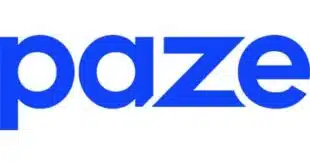Banks are likely to continue testing debit card usage fees in the wake of the Federal Reserve’s new price controls on debit interchange, though such fees are generating heated debate about whether they make good business sense.
“Disincenting consumers to use debit cards I just think is a terrible strategy to use in 2011,” says Ron Shevlin, senior analyst at Boston-based Aite Group LLC who follows banking.
The fee testing is the result of the Fed’s new rule implementing the Durbin Amendment in the 2010 Dodd-Frank Act, a rule that will cut an estimated 45% from the interchange revenue of debit card issuers with more than $10 billion in assets. The slightest hint that consumers in the test markets will hold their noses and pay the new fees could quickly lead to their widespread adoption, some predict.
“Banks are very much thinking about what the next moves are that they need to make,” says Patricia Hewitt, director of the Debit Advisory Service at Mercator Advisory Group Inc., Maynard, Mass. “There very well may be a snowball effect.”
Last week, word spread about Wells Fargo & Co.’s new test of debit card usage fees for some customers in five states. The bank will charge $3 in each month that the cardholder makes at least one purchase with a debit card. JPMorgan Chase & Co. is testing a similar fee in one Wisconsin market, and SunTrust Banks Inc. has a checking account with a $5 monthly debit card fee.
In July, Regions Financial Corp., a Birmingham, Ala.-based bank-holding company with nearly 1,800 branches and $131 billion in assets, began informing new customers that one of its checking accounts would have a $4 monthly debit card fee beginning Oct. 1. Existing customers are now being notified, and the bank also is publicizing the fee in branches and online, according to a spokesperson. The flat fee will be charged if the customer makes at least one debit card purchase per month. Only one fee will be charged each month, no matter how many debit cards are linked to the account or how many purchase transactions occur, the spokesperson says.
As at the other banks, customers can avoid the Regions fee by choosing a checking account with different terms governing minimum balances or other items.
The debit card fee is one attempt by Regions to recoup some of the estimated $170 million a year the bank expects to lose in debit card interchange income because of the Fed rule. “Essentially, because of the way regulations have changed, we’re adjusting how we cover the costs of the cards,” they spokesperson says.
The big issue now is whether such fees will stick. In a consumer survey last year, Javelin Strategy and Research found that 60% of its respondents said any monthly debit card fee would cause them to switch to another payment form. And Hewitt says Mercator’s research shows that “the most negatively viewed fees are transaction-based,” disliked by consumers even more than account-based fees. “What the fee does is put the relationship at risk,” she says, adding that more-affluent customers with higher balances and more bank relationships will likely avoid debit card fees.
But changing banks to evade debit fees could be a messy process that may involve stopping multiple automatic monthly debits, then getting new cards and checks from the new bank and re-establishing automatic withdrawals. Larger institutions with marketing and servicing resources may have an advantage in attracting new customers if they can help customers navigate this process, but local credit unions perceived as consumer-friendly also may benefit, according to Hewitt. “Consumers are going to look at their financial-institution relationships,” she says.
Aite’s Shevlin says banks may add new debit card fees “at a cost of higher customer dissatisfaction.” If fees must be levied in the wake of Durbin, he says, the best strategy would be to charge for check usage or even eliminate that payment form, he says. “The reaction of the banks should have been, ‘that’s it, no more checks.’ Or charge $1 a check.”





